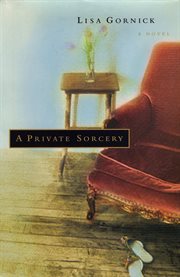Fiction
eBook
Details
PUBLISHED
Made available through hoopla
DESCRIPTION
1 online resource
ISBN/ISSN
LANGUAGE
NOTES
Saul Dubinsky, a sensitive, shy psychiatrist, was living a dual life. Following the attempted suicide of one of his patients, the dedicated young doctor turned to drugs. When he's arrested on criminal charges, his wife and his father are left to figure out how things went so wrong and why they were blind to the pain of the man they both love. Saul's emotionally remote wife, Rena, confronts the failures of their marriage and, for the first time, faces her shame about her fatherless, hardscrabble past. Saul's father, Leonard, who'd long ago given up practicing psychiatry, blames himself for his son's breakdown. He finds that he can no longer escape the memory of the troubled patient who changed the course of his own career nor deny his complicity in his wife's illness. As Rena and Leonard each grapple with the impact of Saul's arrest, they are drawn closer together-and a delicate transformation begins to occur in each of them. This is an immensely satisfying and ultimately triumphant story abouat the precarious balance within a family and about the unconscious ways in which we affect the lives of those we love most. Full of wisdom and insight, A PRIVATE SORCERY marks the debut of a talented writer. Lisa Gornick received her BA from Princeton University and an MA from the Creative Writing Program at New York University. Her short stories have appeared in a variety of literary journals, one of which was selected in The Best American Short Stories series as a distinguished story of the year. She received her Ph.D. in clinical psychology from Yale University and graduated from the Columbia University Center for Psychoanalytic Training and Research, where she is currently on the faculty. She lives in New York City with her husband and two sons. 1 Leonard A regimented man, I rise as always at five, lowering my big white feet onto the cold wood floor. I am thinking of you, Saul, my second-born son. You would laugh to hear me call you my second-born. So biblical, you would say. Begat, begat, begat. Your mother-a flowered bonnet over her beauty parlor hair, her chin slack, the inhaled clu-hah with the slight gasp in the middle, the exhale through the Grecian nose that turned somewhere in the past thirty-seven years from regal to beak-still has a morning's sleep before her and then her daily litany: not a wink all night, such a torture to lie there just watching the clock. Downstairs, I make coffee and struggle to peel an orange. I toy with the night's dream fragment, partly a compulsion like a dog worrying a bone, partly an exercise from my old psychiatry days when residents still spent six months studying Chapter Seven of The Interpretation of Dreams. So different from your training three decades later when, you bitterly complained, no one read books, reading relegated to four-page articles in the green journal, terse pieces correlating drug dosages and symptom checklists. In the dream fragment, I'm with my sisters: Rose, Eunice and Lillian. We're in a room with pocket doors and a clawfoot dining table, so it must be when the six of us lived in the back of my Aunt Mindyl and Uncle Jack's apartment-the dining room, the maid's room and the miniature maid's bath our delegated quarters. Then the scene changes and Carmelita Erendira Gomez, the subject of the accursed biography I've been trying to write these past twelve years, is sitting with my sisters, showing them something I either can't see or can't now recall. I eat standing at the kitchen sink. It's a habit your mother has always hated. "Only laborers eat on their feet," she would hiss in the years when I still existed enough in her consciousness to merit criticism, willfully dumb to the knowledge that my father had spent twenty-nine of his forty-two years breaking his back, the last six leaning over a pressing machine in my Uncle Jack's factory-the job, a gift in Depression years, bestowed only after my father had promised not to utter on the premises so much as
Mode of access: World Wide Web







